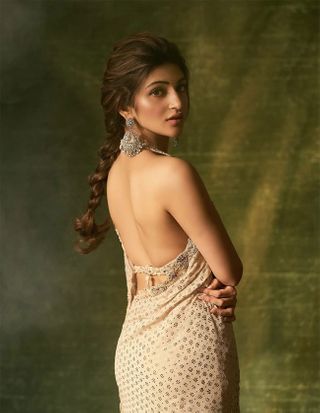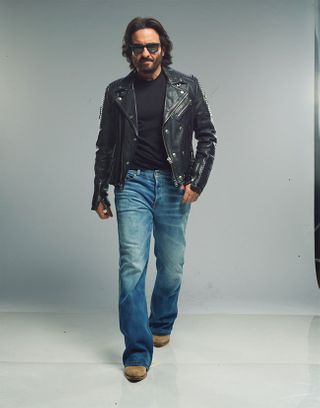
Tomorrowland Movie Review
Today, only two kinds of film-going audiences exist: the artsy "prudes", with their heads up their behinds and their inability to "appreciate a good time"; and the commercial "knuckleheads", who clap and whistle during Salman Khan and Michael Bay movies and lap up anything and everything that's presented to them on an "entertaining" platter.
Director Brad Bird has consistently been one of those few directors who've managed to walk the plank between art and commerce and managed to earn plaudits from both sides. Even with blockbuster Pixar films like "The Incredibles" and "Ratatouille" and even the Mission Impossible film Ghost Protocol (easily the best in the franchise), Bird always maintained his particular aesthetic of being true to his art, of finding heart even in the most mechanical, CGI-oriented films, of toeing the line between whole-hearted entertainment and actually making you FEEL.
Which is why it is doubly, triply disappointing to walk out of the theater after Tomorrowland, knowing that Brad Bird has not only failed in making a "commercial entertaining" film, but also erred in doing what he does so well: making you feel.
Borrowing its name from Disney's own futuristic theme park, Tomorrowland has a lots of ideas about the future, what it looks like and what can be done TODAY to change the TOMORROW. These ideas are the ideals that Casey Newton lives for, an ordinary kid with an affinity to knowing "how things work". Unbeknownst to her, she is a "special" woman who might be the only one who could save the world from the impending apocalypse that's only a couple of months away.
The trouble with Tomorrowland's screenplay (by first time collaborators Damon Lindelof and Bird himself) isn't that it's recycled and stale or that it doesn't have a brain of its own. On the contrary, Tomorrowland's view of the future is a fresh one, one that is its own. In fact, the Bird and Lindelof are smart enough to think up a convulated theory about a dystopian future and the need to act now. They're smart enough to think up a world set in another dimension.
Unfortunately, they just garble up all of their thoughts and ideas into a neat, visually stunning, special effects-laden, highly expensive package without really compiling them into a cohesive, coherent narrative. They're too lazy to make the effort of connecting all of the strings and actually justifying their theory. They throw everything they've got at you, in the hopes of distracting you long enough to sneak by undetected.
But without having established the relation between its many moving parts, the film is just a bunch of loosely-connected ideas that don't go anywhere and don't make much sense. You get human teleportation via satellite, fancy-named robots, a machine that "broadcasts" the future instead of "predicting" it, and a world called Tomorrowland, but you're just not sure what to make of all of this.
Coming to Tomorrowland itself. The film takes so long (second half of the second half) and builds up the "land of hope" so much ("just try to be amazed") that even when we finally reach it, it's kind of an underwhelming place to be. Sure, it has a HoverRail (fancy better trains), jet packs, rocket launches every few seconds, and multi-storeyed swimming pools that are curiously built out in the open, right next to the HoverRails. But Bird confuses technological superiority for "interesting".
Films set in alternate universes and realities only work when there's a certain degree of world-building to then, when they manage to pique your curiosity and make you want to know more about the world, when there's more layers involved than just fancy swimming pools that are clearly a health and safety hazard. In stark contrast, Tomorrowland remains a mythical, mystical place in all-white that you aren't too eager to spend time in.
One thing that you definitely can't take away from the film is its visual splendor. The film looks as gorgeous as anything has ever looked, even in the few non-CGI scenes. The camera work (by Claudio Miranda) and the editing (Walter Murch) are particularly impressive in two sequences: the pin-touching portion in the beginning and the glimpse-at-the-future through the machine towards the end.
Another aspect of the film that sorely disappoints is that it cannot justify the presence of George Clooney. Don't get my wrong, Clooney is his usual effervescent self here. But neither is his screentime nor is his character itself substantial enough to leave a proper impact. Britt Robertson and Raffey Cassidy, on the other hand, have their charm on full display and are great to watch, both together and separately. Another mistake that Bird makes is the giving a miniscule screentime to Hugh Laurie's Governer Nix. The character has interesting motivations and thought process, and Laurie plays him with the same sly wit that he's the boss at. But you don't really spend enough time with him to really get inside his head.
Tomorrowland has some relevant ideas about global warming and the fast approaching destruction of the world as we know it, unless we actually do something about it. And as Nix points it, we may just have accepted our fate instead of working on changing it. But without balanced storytelling to expand on it, we're left with a brand-synergistic film that appears more like a brainstorming session than a fully-formed idea. We expected better from Brad Bird, and I shall continue to do so. Tomorrowland, much like the apocalyptic future in the film, is a folly I'd like to forget ever existed.









